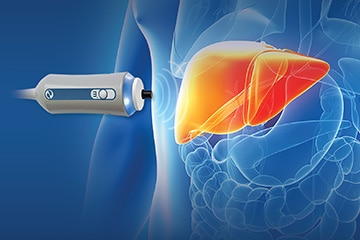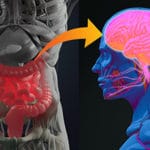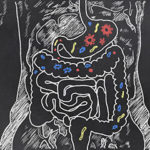The liver is one of the largest organs in the body and plays a vital role in sustaining life by processing nutrients, creating bile and removing toxins.
Although the liver is a resilient organ, disorders like fatty liver disease can disrupt critical functions and, in severe cases, cause permanent damage. What do you need to know to prevent fatty liver disease and sustain the health of your liver throughout your life?
Understanding Fatty Liver Disease
 The liver normally contains some fat, but fatty liver — also known as steatosis — occurs when the fat exceeds 5 to 10 percent of total liver weight.
The liver normally contains some fat, but fatty liver — also known as steatosis — occurs when the fat exceeds 5 to 10 percent of total liver weight.
Most people with fatty liver disease have no symptoms at all, or are asymptomatic. Unless you have a chronic underlying liver disease, like Hepatitis C for example, it's uncommon for fatty liver to cause any abdominal discomfort.
Fortunately, fatty liver disease can often be reversed with proper treatment and lifestyle adjustments. It can, however, cause permanent harm if it goes undetected for too long.
Fatty liver disease occurs as four distinct types:
- Alcoholic fatty liver can result from heavy drinking that impairs the liver from breaking down fats. The condition often can be reversed with cessation of alcohol consumption, but continued drinking can result in cirrhosis.
- Nonalcoholic fatty liver occurs when the ability of the liver to break down fats becomes impaired, but the condition is not related to consuming alcohol.
- Nonalcoholic steatohepatitis occurs when fat builds up in the liver sufficiently to cause swelling due to factors other than alcohol consumption. Without treatment, the condition can result in eventual scarring and failure of the liver.
- Acute fatty liver is a rare, very serious condition that occurs during pregnancy. Symptoms typically start in the third trimester and include jaundice, malaise, nausea, vomiting and abdominal pain.
Are You at Risk?
Certain populations have a higher risk of developing fatty liver. If you’re overweight or have type 2 diabetes, you may be at greater risk.
In addition, pregnancy, high cholesterol or triglycerides, malnutrition, and metabolic syndrome can increase your risk. If you consume alcohol excessively or take doses above the recommendation of some over-the-counter medicines — including acetaminophen — you also may have a higher chance of developing the condition.
Preventing Fatty Liver Disease
When you take steps to protect the health of your liver, you greatly reduce the risk of fatty liver disease. Consider limiting your alcohol consumption to one drink daily for women and no more than two drinks a day if you’re a man.
In addition, eat a healthy diet that includes vegetables, whole grains, fruits and healthy fats, and try to keep your weight within the recommended range. Get some exercise several times a week, with approval from your doctor.
If you have high cholesterol or diabetes, be sure to follow your doctor’s advice and take your medications as recommended.
How Does the New FibroScan® Technology Help?
An exam using new FibroScan® technology is a quick, easy and non-invasive way to help maintain the health of your liver.
The scan provides your doctor with valuable information on your liver’s stiffness and overall health. The procedure works by releasing an energy pulse that you’ll feel as a gentle vibration on your skin.
FibroScan® measures the speed of the energy to quickly determine the stiffness of your liver and help your doctor assess your liver health. Most insurance plans cover the procedure.
To learn more about protecting your liver health, please contact Northeast Digestive Health Center.



